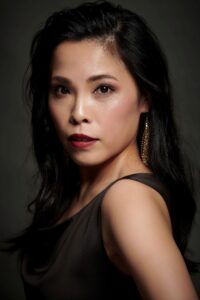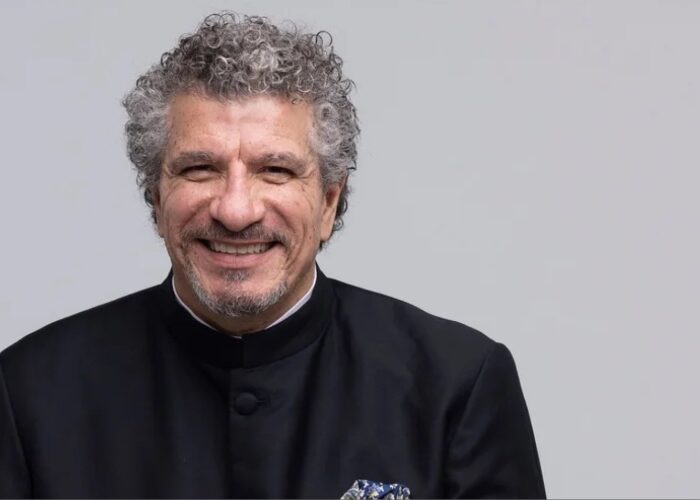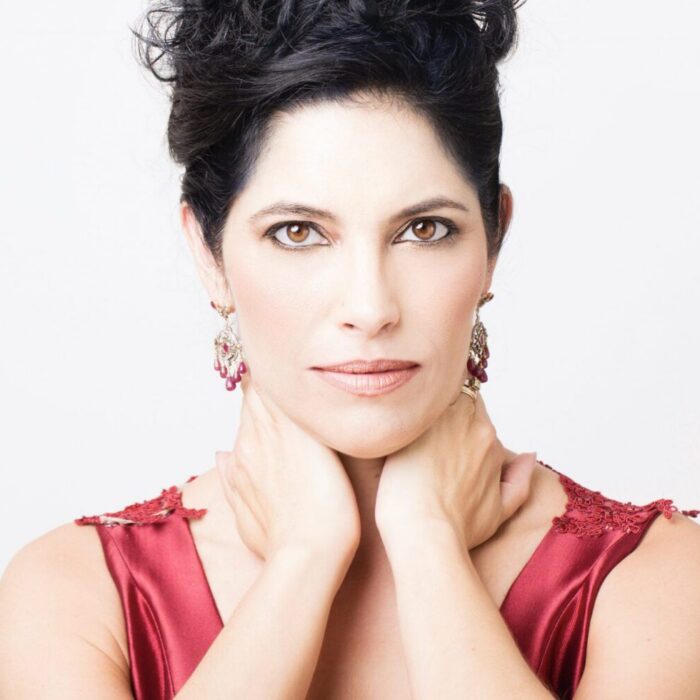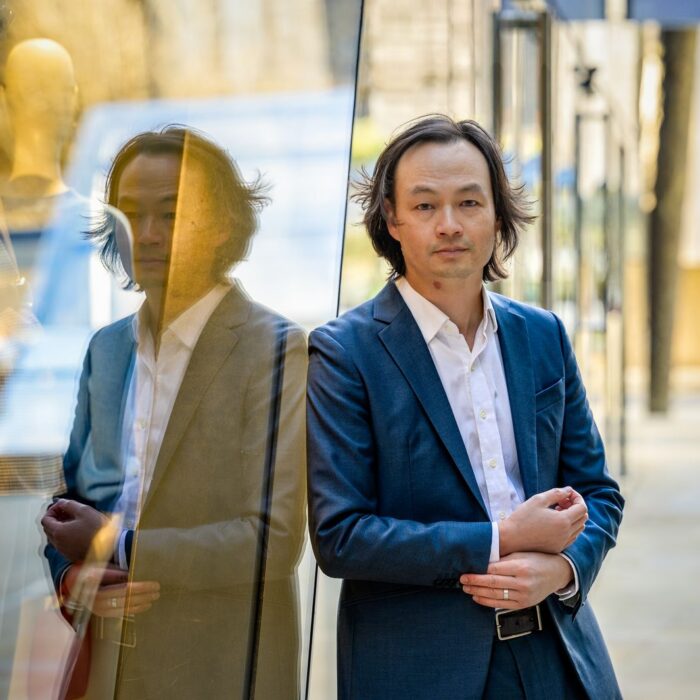
Q & A: Soprano Eri Nakamura on Verdi & Puccini, The Singers She Idolizes, & Singing in Tokyo
By David SalazarJapanese soprano Eri Nakamura is in the prime of her career. The soprano, who has become a go-to interpreter of Cio-Cio San around the world, first came into prominence as a member of Jette Parker Young Artist Program. During that time, she stepped in for Anna Netrebko in “I Capuleti e i Montecchi,” a moment that she describes as one of the most crucial in her career.
From there, she’s found herself at all the major theaters in Europe, scoring rave reviews for her incisive portrayals and vocal brilliance. I had the opportunity to witness her Cio-Cio San firsthand in Stockholm last year, noting that “In all, this ‘Butterfly’ was all about Nakamura and her artistic genius that flourished more and more as the night developed. She is the reason to see this opera.”
Next up for the soprano is a return to another major touchstone of her career, the New National Theatre Tokyo where she made another important and formative debut back in 2003. This time, she takes on the demanding role of Violetta in “La Traviata.”
Nakamura spoke to OperaWire about her career trajectory, the major challenges she’s overcome, and why it’s special to sing at the New National Theatre Tokyo.
OperaWire: What inspired your career as a singer? What was the first opera that you ever saw?
Eri Nakamura: The first inspiration was my debut as Barbarina at NNTT in 2003. I never imagined that I could make a good career in Tokyo because it was too competitive for me who was from a small town in Hyogo, Japan. But when I joined the Figaro with the international casts I felt like that it was a wake-up call. The rehearsals were so creative and fun. I started to study English (I could not speak any foreign languages at that time) and also started to look outside of my country. My aim was to get a work-visa somewhere in Europe. So I took auditions and studied at the Opera Studio Nederland for two years. Then I went to London for the JPYAP, then sang at Bayerische Staatsoper as an ensemble member for six seasons.
My first experience of live opera was “Suor Angelica” near my hometown. I didn’t learn anything about the piece beforehand and the result was I didn’t know who was the “Angelica” till the end. It was my fault but I found opera boring! After a couple of years I watched “Tosca” and the experience changed my mind. Puccini has been my favorite opera composer ever since. I love “Suor Angelica” now and would like to sing the role someday.
OW: Who are some of your major inspirations and mentors that helped you build your career?
EN: Thomas Novohradsky (Artistic Director of NNTT 2003-2007), He told me that I should get experience as an Ensemble member like in German speaking theaters. In his time, several opera studio members could gain experience on main stage productions and I was one of them. He gave me Ilia, Marzelline, Nannetta, Childrens’s operas, covering Adele and Susanna etc. after my debut as Barbarina.
And Brian Masuda who was the music head coach of the NNTT Opera Studio – he pushed me to try the audition for the Opera Studio Nederland and I could study with the colleagues from various countries.
Brian and Mr. Novohradsky were the two important people who kept encouraging me and believed me that I could have an international career. I actually didn’t believe what they said that time. I was always kind of a village girl – never imagining that I would sing main roles.
David Gowland from ROH JPYAP, he is my coach, a great recital pianist, and a mentor. Mainly we work when we meet so I cannot have enough time to talk but his quick advice makes me feel at ease and gives me confidence.
Richard Whilds from Bayerische Staatsoper, he is my regular coach in Munich. When I decided to try Butterfly, Richard helped me the most and still does. We all had a difficult time due to COVID and he was one of the very few people who supported me as a mentor and as a friend.
OW: What are some of the greatest challenges that you have had to overcome thus far in your career and what have you learned from those moments?
EN: It was not easy to deal with loneliness. First, when I went to Tokyo, I felt really alone, had no friends nor relatives whom I could rely on. I was naive and vulnerable (I still am, in a way), lost high notes because I lost self confidence. Looking back, it was actually good that I had enough time to confront myself and to build up a clear willingness that I wanted to become a professional singer. And after making a debut at NNTT I had some good colleagues at main stage. Many of them are still working there and I am looking forward to working with them again quite soon. That first two years in Tokyo were the hardest for me, I guess. Of course it was always hard when I move to a new country. But I think I learned how to protect myself and could prepare for what I had to deal with before leaving Japan.
OW: What are some of your major highlights of your career so far?
EN: Jumping in for Anna Netrebko in 2009 at ROH as Giulietta. The Romeo was Elina Garanča. It happened when I was in the first year of JPYAP. Singing Susanna, Gilda and Liu at ROH were also unforgettable.
I had some good roles in my Ensemble period at Bayerische Staatsoper as well. The new production of “I Capuleti e i Montecchi” was definitely one of my highlights, too.
My favorite productions are, actually I had great time with all my three “Butterfly” productions (Tokyo, London and Stockholm). At the moment, two more Cio-Cio-sans are planned in near future so I hope that both productions also will be great.
I was able to work with Elina Garanča last year for her concerts since her great “Carmen” in 2010 at ROH (I was Frasquita and the Micaëla cover). It was again a jumping-in situation and I could not sleep at all because of the pressure and brainstorming, at the same time I learned from her a lot, like a student. She is my star forever and I admire her very much as an artist and as a person. She is an inspiration.
OW: Shifting gears to the New National Theatre Tokyo, what makes performing there a special experience?
EN: I love working at NNTT, love my old colleagues who are in the chorus, stage managements and the music staff. We’ve known each other for 20 years so NNTT is my old nest and it’s always a pleasure to be back. The audience in Tokyo is enthusiastic and I appreciate their support as well.
OW: You are taking on the role of Violetta. What are the challenges of taking on this role? How is she similar or different from you as a person?
EN: Violetta requires the highest discipline in my repertoire. Especially the first Act, I have to set up my voice as light as possible to sing all coloratura. NNTT’s “Traviata” has a break after the first scene of the second Act so after the biggest aria I have no time to settle down to concentrate for the next big scene with Germont since there is a complete costume change. And after performing all the dramatic elements she has the most heavenly music just before her death. All the scenes are favorites but you have to keep the stamina and good concentration till the very end. Well, Cio-Cio-san or the other roles need that, too, but Violetta requires a wider technical range, at least for me it is a tough role.
I think, she is “La Traviata” but most of her actions in the opera are right and sensible. I would do the same, like I would sell all my valuables to live with the true love, and I would sacrifice myself if I were in her situation. I cannot imagine living in the “Demi-monde” at all. It must be beyond hard and cruel, I am too normal for that world!
OW: One of your signature roles is “Madama Butterfly,” another lengthy role that features major character and musical development throughout the evening. How does singing Puccini differ from singing Verdi?
EN: There are lots of tempi and stage directions in Puccini’s vocal score and Verdi writes the dramatic direction in the music. When I perform Puccini’s roles I feel like playing in a film sometimes because basically the text is performed almost only once and no chance to tell things twice with the same context. Especially for M.Butterfly, I am not thinking about my vocal technique apart from “Un Bel di”, I just live as the character or worrying about the costume occasionally!
About Verdi, especially when I sing Violetta or maybe Gilda, the musical intensity is high from the beginning till the end. I try to keep a healthy, pure sound for the phrasing. I do the same for Puccini but for me Verdi requires more athletic aspects. I mean, it’s more physical. Both roles have long journeys and are tough to perform. I feel exhausted after most of the shows. But sometimes I cannot move in my dressing room for a while after singing Cio-Cio-san because there is more emotional exhaustion and I feel burned out!
OW: Do you have a favorite role to sing?
EN: Needless to say, Cio Cio san and Violetta are very special.
The others, I loved singing Gretel (because it is fun to play a child and the music is just wonderful), Gilda (Rigoletto is my favorite opera to watch and to perform.) and Magda (As I mentioned above, I felt like I was playing in a film when I sang Magda and loved it.).
OW: What are some dream roles that you would like to take on in the future?
EN: Nedda, “Il Trittico,” maybe Suor Angelica and Lauretta only… And Leonora from “Il Trovatore” and “La Forza del Destino.”


